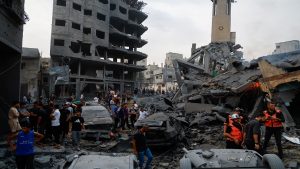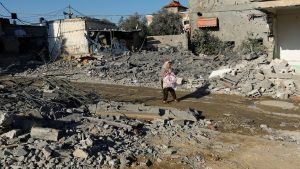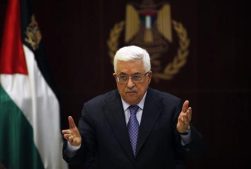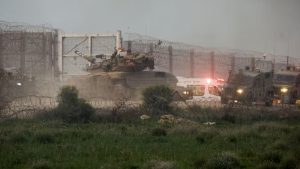“We’ve lost our moral compass on Gaza as humanity and the international community,” so says the Deputy Secretary General of the United Nations, Amina Mohammed.
Mohammed made the remarks at the launch of a new report highlighting the massive finances needed to help get the Sustainable Development Goals back on track.
Mohammed was asked about her personal views on the situation in Gaza, more than six months since the Hamas attack on Israel and the subsequent war, destruction and humanitarian catastrophe in the enclave.
More details in the report below:
Humanitarian ceasefire
Mohammed says she stands fully behind the calls from Secretary-General Antonio Guterres for an immediate humanitarian ceasefire in Gaza and the immediate release of all hostages still held by Hamas – but had pointed words for the international community as a whole.
“It’s really important for us to hold fast to what is right on a personal level. And I don’t know if I have a personal, I have the luxury of a personal statement to make. But I will say that for me, of great concern is that we have lost our moral compass on Gaza as a humanity, as the international community, and we need to do something about that fast. Well, late. There are thousands of children who continue to lose their lives and live amputated. there are hundreds that we are waiting to come home. Hostages. I know well about hostages that are being taken. I come from a country where Boko Haram still has thousands of hostages that we have lost and have not recovered from. This is painful, for the families. and we have to have that resolved now. But let me just say, you know, and finally that what the SG says, I say, and I believe in it, and I believe that, today has leadership without it, we would be in a worse place.”
Speaking at the launch of the 2024 Financing for Sustainable Development Report that warns that the 2030 development agenda was in peril without greater financing, the question turned to the development reversals experienced in Gaza in just the last 6 months – from poverty to food insecurity, decent work, clean water and sanitation … development gains achieved over decades, decimated by the war.
“The Gaza of yesterday is not the Gaza of today, the SDGs that we had hoped for in Gaza. And I will say we did. We had agencies and all people working very hard with partners in Gaza. And there was hope. Hope came through UNRWA and education. Hope came through some of the activities that young people were able to get engaged with and that they were connected, digitally so that they could be part of the world and see that at the end, of their, aspirations they could achieve them. But today. Today. No. And I think that this is, you know, rights denied. And as I said, we’ve lost our moral compass. We do not see Gaza and its people, we see a war and that’s not acceptable. That’s just not acceptable. So for the SDGs, we will always continue to live in hope. We still have six years. Maybe we can have a ceasefire tomorrow and we can begin to rebuild. But it is more than just rebuilding infrastructure. These are people, these histories. These are communities. These are lives. These the generations.”
With over 33 000 killed, mainly non-combatant women and children, Gaza is now a place of death, suffering, and destruction; while demands for an immediate ceasefire including from the Security Council continue simply to be ignored … as yet without consequence.






